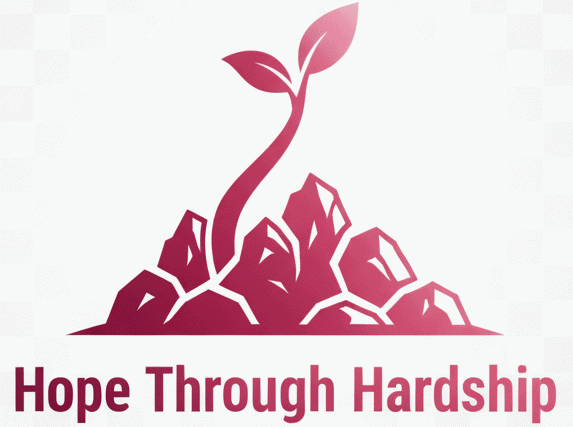Leaving a job can feel overwhelming, especially if you’re in a job you hate. Every morning feels heavier, your motivation fades, and the idea of staying even one more week makes your chest tight. You might be tired of the hostile work environment, battling workplace stress, or just dealing with the deep drag of career dissatisfaction. Whatever your reason, it’s time to find the best way to resign from a job you hate—with grace, strategy, and your dignity intact.
Common Reasons for Quitting a Job
Before quitting, it’s good to know why people walk away from their jobs. Many feel unhappy at work due to poor work-life balance, professional unhappiness, or a toxic boss. Some deal with severe job burnout, while others face daily work environment issues that make them feel drained. People may also leave due to a lack of career progression, feeling stuck without any chance to grow. Recognizing your reason helps clarify whether quitting is the right move.
Ability to Earn More Money
Money isn’t everything—but it does matter. If your current role doesn’t offer a chance for a salary increase or better compensation package, it’s understandable to look elsewhere. Many leave to chase a higher salary, especially if their work isn’t appreciated or matched with fair pay. Exploring the job market can open doors to roles with better benefits and stronger employment prospects.
More Positive Work Environment
A toxic workplace can poison your entire life. If you’re constantly dealing with hostile work environments, gossip, or a lack of support, it affects your mental health. Leaving gives you a chance to find a company that values team dynamics, clear communication, and mutual respect. A healthy corporate culture can reignite your passion for work.
Better Work-Life Balance
Some jobs consume your life, leaving no time for rest, hobbies, or family. When your schedule crushes personal freedom, poor work-life balance becomes a major reason to go. Switching to a job that allows a flexible schedule or even remote work can offer freedom and peace.
Improve Stress Levels or Health
Chronic stress can make you physically sick. If your job triggers constant anxiety or workplace stress, it’s time to think about your health. Staying in a role that destroys your well-being isn’t worth the paycheck. Resigning gives you space to heal emotionally and physically.
Chance to Pursue New Opportunities
Quitting can also be about growth. If you’re dreaming of a career change, pursuing professional development, or exploring new job opportunities, leaving may be your first big step. You might want to switch industries, learn new skills, or follow a long-held passion. Embracing this shift can lead to real career growth and joy.
10 Tips for How to Quit a Job You Hate
Knowing the best way to resign from a job you hate means leaving with class, not chaos. It’s not about storming out or burning bridges. It’s about handling the resignation process smartly and respectfully.
Provide Adequate Notice
Always give your two weeks’ notice, unless your contract says otherwise. The notice period gives your employer time to adjust. Check your employee handbook for exact steps. Write a formal resignation letter with your final date and a short thank-you message.
Remain Professional
Even if you’re beyond frustrated, stay polite. Talk about your next step or the positives from your time there. Don’t badmouth anyone. Maintain professionalism to protect your professional reputation and future job options.
Tell Your Manager First
Your supervisor relations matter. Speak with your manager before your team. It shows respect and lets them handle the situation wisely. They may need to consult with HR or plan how to transfer responsibilities.
Participate in an Exit Interview
If the company asks, agree to an exit interview. It’s your chance to share honest but calm feedback. Keep the focus on helping the company improve, not venting. Doing this helps you leave on good terms.
Complete Unfinished Tasks
Before your final day at work, do your best to finish your projects. If you can’t complete everything, leave notes or instructions for the next person. A smooth transition period builds trust and keeps your professional reputation strong.
Update Your Records and Files
Make sure everything is organized before you go. Clean up your digital files and hand over passwords, documents, and project details. This makes sure your team isn’t lost when you’re gone. Also, it helps with documentation handover.
Set Up Your Communication Methods
Before leaving, set email auto-replies and voicemails that say who to contact in your absence. Update clients or coworkers so they’re not left confused. This shows maturity and attention to detail.
Clean Up Your Digital and Physical Space
Your desk and computer hold more than just papers. Delete any personal data, clear bookmarks, and log out of private accounts. Physically clean your area, return office items, and leave the space ready for the next person.
Ask for a Recommendation
If you’re parting on good terms, ask for a letter of recommendation. It’s easier to ask when your work is still fresh in your manager’s mind. This can boost your future networking connections and open doors for future opportunities.
Research Possible Continued Benefits
After you resign, some employee benefits might still apply. You could be owed accrued benefits, vacation time, or even temporary healthcare coverage through COBRA coverage. While most states don’t offer unemployment benefits if you quit, it’s worth checking your local rules.
Staying on Positive Terms After Leaving
Your last impression can matter more than your first. Keep relationships strong even after you leave. Thank your coworkers, share contacts, and be open to staying in touch. A good goodbye strengthens your professional references and helps in your long-term career progression.
Clients
If you worked directly with clients, let them know you’re moving on. Introduce them to the new point of contact. Clients appreciate transparency, and you’ll be remembered as someone who cared.
Coworkers
Say a warm goodbye to your team. Share your contact details if you want. Even a short message or coffee catch-up can leave a lasting impression and keep your coworker relationships strong.
Manager
A respectful goodbye to your manager builds bridges. Express gratitude even if things weren’t perfect. You never know when your supervisor relations might come in handy again in the future.

Final Thoughts
Walking away from a job you hate isn’t quitting—it’s choosing yourself. By following the best way to resign from a job you hate, you protect your future, your health, and your peace of mind. Whether you’re chasing career fulfillment, better pay, or just peace, leaving right is part of moving forward. As the saying goes, “Don’t burn the bridge—you might need to cross it again.”
| Checklist for a Smooth Resignation | Details |
|---|---|
| Include the final date and thanks | Talk to the manager before others |
| Give two weeks notice | Follow company policy |
| Smooth transition for the next person | Shows respect and professionalism |
| Finish projects or leave notes | Ask for a recommendation letter |
| Return company property | Badge, laptop, files, etc. |
| Ask for recommendation letter | Helps in job search later |
| Review employee benefits | Unused vacation, COBRA options |
| Say goodbye professionally | Maintain connections and respect |

